INTERACT Speakers
Dr. Kelli Almes

Dr. Kelli Almes is an Associate Coordinator for the National Animal Health Laboratory Network, where she co-leads the Exercises and Drills Working Group and helps coordinate national disease outbreak response activities. She plays a key role in strengthening laboratory preparedness by guiding national exercises, webinars, emergency management programs, and training of foreign animal disease diagnosticians, while also representing NAHLN in interagency networks such as the Integrated Consortium of Laboratory Networks. Before joining USDA, Dr. Almes served as an anatomic pathologist and the Foreign Animal Disease and Outbreak Section Head.at Kansas State University’s Veterinary Diagnostic Laboratory, focusing on diagnostic service, student education, and research collaboration with African Swine Fever Virus and Highly Pathogenic Porcine Reproductive and Respiratory Syndrome. She is a graduate of Kansas State University, where she earned her BS in Agriculture, DVM, and completed her residency in Anatomic Pathology.
Dr. Bassirou Bonfoh
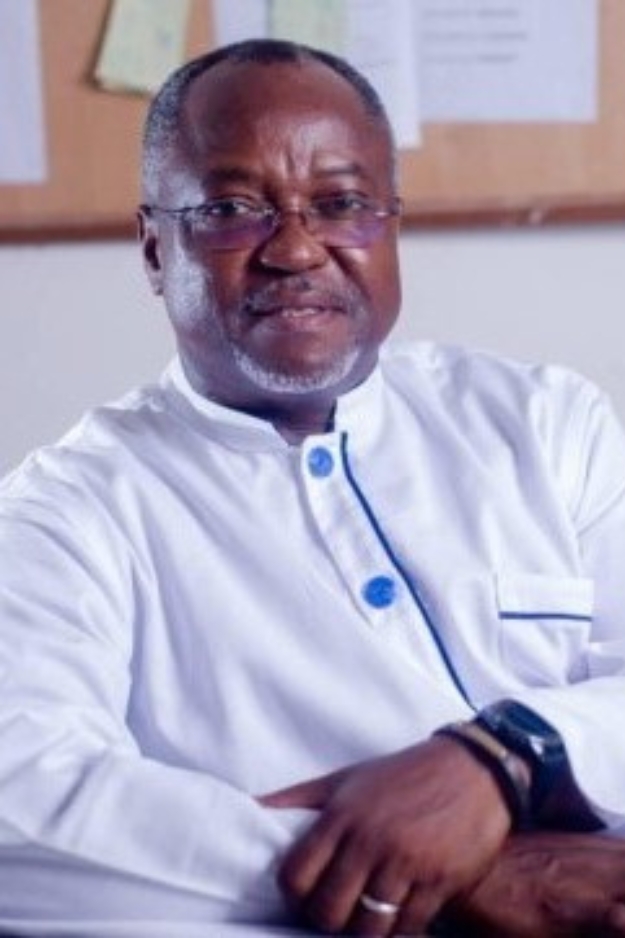
Bassirou Bonfoh holds a DVM and a PhD in epidemiology, with over two decades of experience in global health research and capacity building. He began his career with Vétérinaires Sans Frontières in West Africa (1995–2000) before completing a postdoctoral fellowship in epidemiology at the Swiss Federal Institute of Technology Zurich and Swiss TPH (2000–2004). From 2004–2008, he led a research group promoting the One Health (OH) approach in Africa and Asia, focusing on zoonoses and food safety. He served as Managing Director of CSRS (2009–2018), advancing transdisciplinary research, scientific diplomacy, and institutional partnerships. After a sabbatical at Rakuno Gakuen University in Japan (2018), he expanded his OH work to include non-communicable diseases and behavior change. Since 2009, he has directed Afrique One, a leading African One Health research and training initiative funded by Wellcome and DELTAS Africa. He also coordinates ARCH, a consortium of 14 research networks under the African Science Foundation. Bassirou is a guest lecturer at institutions including the University of Oxford, University of Liège, Swiss TPH, and several African universities. He is a fellow of the African Academy of Sciences and advises ECOWAS on One Health coordination.
Dr. James DeCaprio
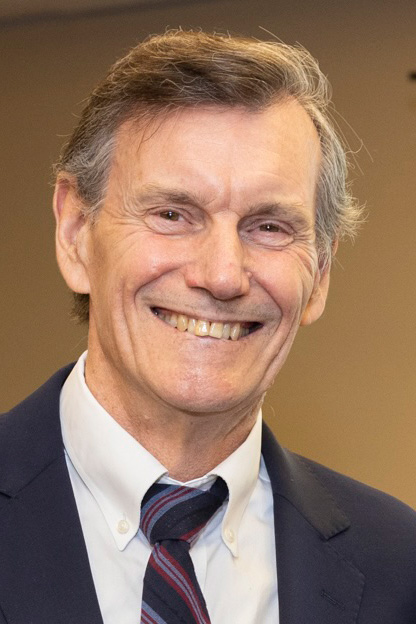
James A. DeCaprio, MD is a Professor of Medicine at Harvard Medical School and Dana-Farber Cancer Institute (DFCI). He studied Medicine at the State University of New York at Buffalo, Internal Medicine at the University of Chicago, and Medical Oncology at DFCI. He was a research fellow in the laboratory of David M. Livingston and began his own laboratory at DFCI in 1992. Currently he leads a lab with 5 postdoctoral fellows, 5 graduate students, and 4 undergraduate students. He serves as the Chief, Division of Molecular and Cellular Oncology at DFCI, where he facilitates the research efforts of 30 independent faculty including several members of the National Academies of Medicine and Science.
Dr. Renukaradhya Gourapura
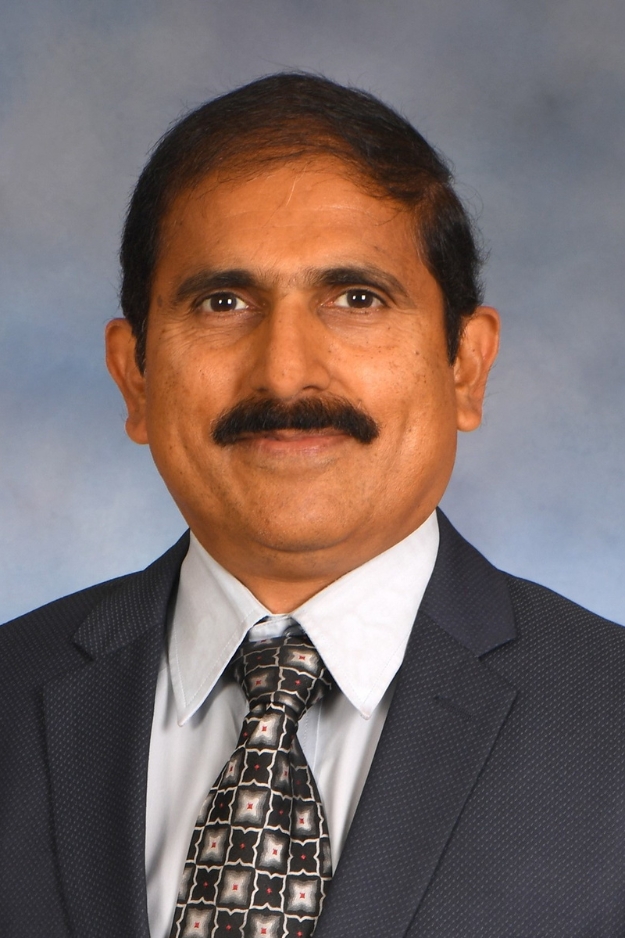
Renukaradhya J. Gourapura, DVM, MS, PhD, is a Professor and Director of the Center for Food Animal Health at The Ohio State University, where he also serves as Scientific Director of the Plant and Animal Agrosecurity Research Facility (Ag-BSL3). He earned his DVM and MS from the Veterinary College in Bangalore and his PhD from the Indian Institute of Science, followed by postdoctoral training at Indiana University School of Medicine. Dr. Gourapura’s research focuses on food animal immunology and vaccine development, with support from nine current grants and 47 completed projects. He holds eight U.S. patents (five approved) with two licensed, and has authored more than 120 peer-reviewed articles and book chapters. He has mentored over 60 students and scholars and delivered nearly 70 invited presentations globally. He is a Fellow of the National Academy of Inventors and recipient of the 2021 Innovator of the Year Award from Ohio State’s College of Food, Agricultural, and Environmental Sciences. A former President of the American Association of Veterinary Immunologists, Dr. Gourapura also serves as an editor and grant reviewer for national and international scientific organizations.
Dr. Vikram Gujar
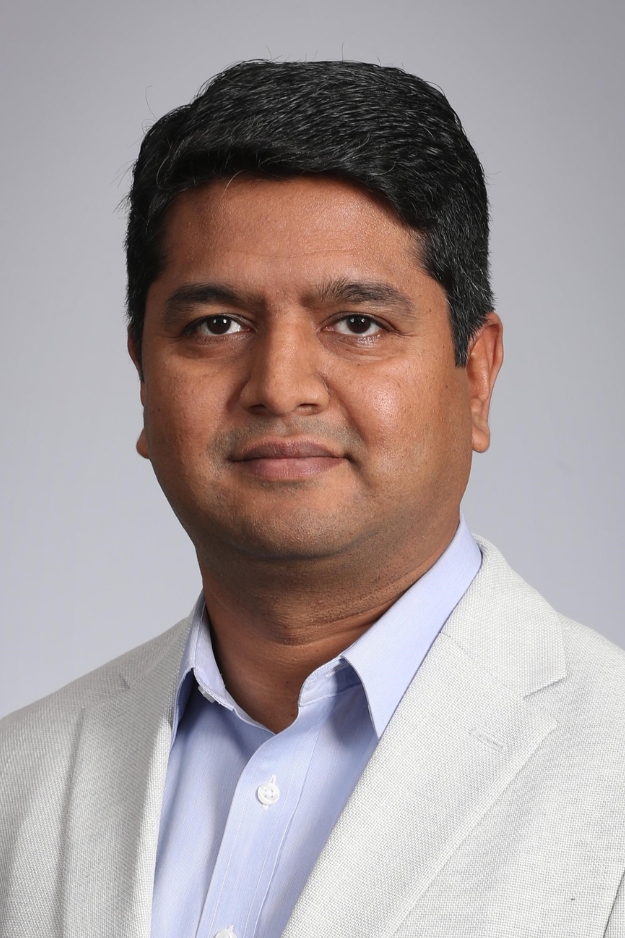
Dr. Vikram Gujar is an Assistant Professor of Anatomy and Cell Biology at Oklahoma State University Center for Health Sciences (OSU-CHS). He earned his Ph.D. in Biomedical Sciences, with a focus on peripheral neuroinflammation and pain, and examined how neuroimmune signaling contributes to inflammatory pain conditions. He completed his postdoctoral training in the Department of Allergy and Immunology at Northwestern University, Chicago, where he investigated type 2 inflammation and its impact on airway epithelial dysfunction. At OSU-CHS, Dr. Gujar teaches neuroanatomy to medical and graduate students, incorporating human brain prosections, clinical correlations, and systems-based instruction. He is also actively involved in course design, curriculum development, and coordinating lab-based learning experiences. In addition to his teaching responsibilities, Dr. Gujar mentors high school, undergraduate, and graduate trainees, fostering research skills, critical thinking, and scientific communication. He serves on multiple institutional committees and contributes to interdisciplinary academic initiatives. His current research interests include inflammation biology, airway-sensory interactions, and the discovery of biomarkers using extracellular vesicles.
Dr. Matlock Jeffries
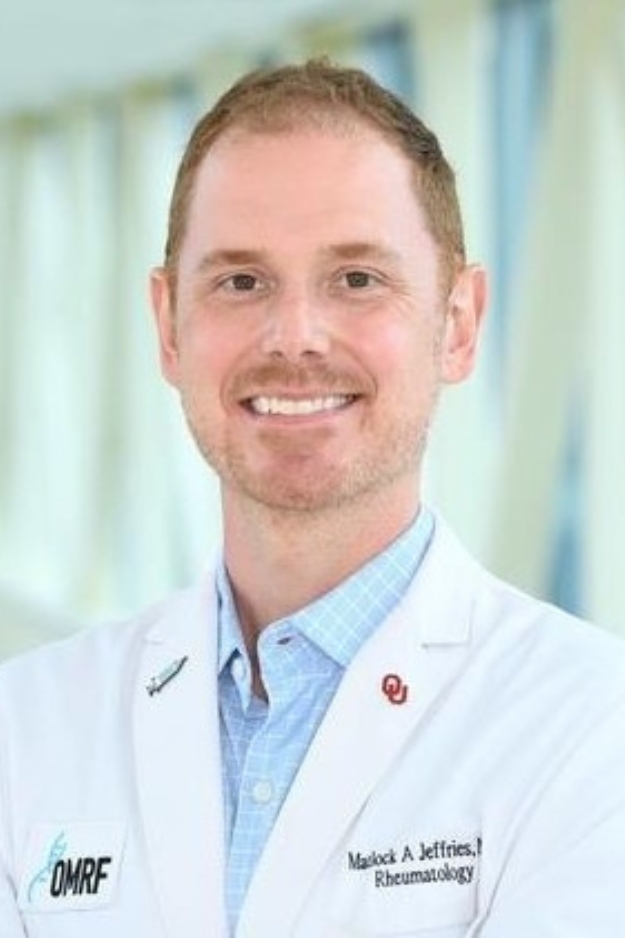
Dr. Matlock Jeffries is the director of the Arthritis Research Unit and Associate Professor in the Arthritis & Clinical Immunology Program at the Oklahoma Medical Research Foundation. He is also a VA clinician and researcher and holds an adjunct appointment at the University of Oklahoma Health Sciences Center, where he teaches medical students, residents, and rheumatology fellows both in the classroom and in the clinic. A physician scientist, Dr. Jeffries’s laboratory focuses on the effects of non-genetic factors in knee osteoarthritis, including epigenetics and the microbiome. His basic science work includes the first large-scale description of bacterial DNA within human and mouse joints, the identification of the gut microbiome as a key mediator of differences in mouse OA according to sex and strain. His clinical science work includes the development of the highly accurateperipheral blood biomarker models that can predict future knee OA onset and progression as well as work in clinical trials of novel OA therapies. He has been granted research funding from the National Institutes of Health, the Department of Defense, the VA, and ARPA-H.
Dr. Sudhakar Jha
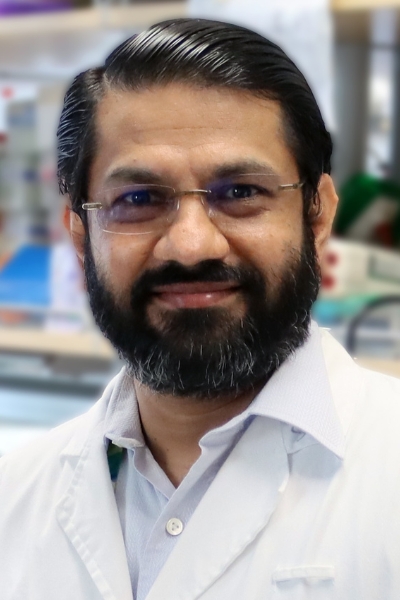
Dr. Sudhakar Jha is an Associate Professor of Physiological Sciences at Oklahoma State University’s College of Veterinary Medicine. With over two decades of experience in cancer biology, Dr. Jha’s research focuses on chromatin remodeling, epigenetic regulation, and the role of nuclear biomolecular condensates in cancer stemness and metastasis. He has made significant contributions to understanding the signaling pathways involved in colorectal cancers and the role of epigenetic modifiers in viral oncogenesis. Dr. Jha has led multiple research programs supported by competitive national and international grants. His funding portfolio includes projects from the Ministry of Education Singapore, National Medical Research Council, and collaborative translational programs at OSU. Before joining OSU, he served as a Principal Investigator at the National University of Singapore’s Cancer Science Institute. He has authored over 40 peer-reviewed publications and holds several patents on cancer diagnostics and therapeutics. In addition to his research, Dr. Jha is an editorial board member of Frontiers in Cell and Developmental Biology, SLAS Technology, and Cancers, and serves as an ad-hoc reviewer for high-impact journals such as Nature Communications, Nucleic Acids Research, Cell Reports Medicine, Science Advances, and others.
Dr. Madhavi Kadakia

Dr. Madhavi Kadakia is a professor in the Department of Biochemistry and Molecular Biology (BMB) at Wright State University (WSU). She earned her Ph.D. in Infectious Disease and Microbiology from the University of Pittsburgh and completed postdoctoral cancer research at the Pittsburgh Cancer Institute and the Cancer Institute of New Jersey. Joining WSU’s BMB Department in 2002, she was promoted to Associate Professor in 2008 and Professor in 2013. She as department chair (2015–2021), where she launched the undergraduate biochemistry and molecular biology program. She also served as Associate Dean of Research Affairs at the Boonshoft School of Medicine (2019–2021), leading strategic initiatives to promote cross-disciplinary research, restructure the Clinical Trials Research Alliance, and optimize the Laboratory Animal Center. As Vice Provost for Research and Innovation from July 2021 to June 2025, she made significant contributions to the university’s research ecosystem. She strengthened partnerships with Wright-Patterson Air Force Base, the Air Force Research Laboratory, and the Naval Medical Research Unit Dayton, advancing shared infrastructure, collaborative projects, and workforce development. She helped establish the a state-of-the-art MRI facility supporting research in cognitive neuroscience, human performance, and brain-computer interfaces. She also introduced faculty recognition awards, standardized research policies, a grant development program, and the annual Celebration of Research. Under her leadership, research awards increased by 22% in FY24. Nationally, Dr. Kadakia completed the prestigious Hedwig van Ameringen Executive Leadership in Academic Medicine (ELAM) Fellowship in 2019 and serves in multiple leadership roles, including with the AAMC Group on Research Advancement and Development Steering Committee, Dayton Veterans Affairs Research Foundation Board, and the Wright Brothers Institute Board. An internationally recognized cancer scientist with a strong record of federal funding, she has published over 43 peer-reviewed articles, trained numerous trainees, organized international scientific meetings, and served as a reviewer for the NIH, DoD, and leading journals. She also led WSU’s Research Task Force during COVID-19, facilitating the safe return of researchers to campus. She is currently funded through a RO1 grant from, NCI/NIH through 2028.
Dr. Pankaj Kumar

Dr. Pankaj Kumar is an Associate Professor in the Department of Biochemistry and Molecular Genetics at the University of Virginia (UVA) and serves as the Director of the Data Science/Bioinformatics Core at the UVA School of Medicine. He has a dual background in biology and computer science, with over two decades of experience in computational biology, pan-cancer genomics, and microbiome research. Since joining UVA, Dr. Kumar has led numerous collaborative projects involving large-scale omics data integration, supporting both basic science and translational research. His research focuses on understanding disease mechanisms through metanalysis and multi-omics data integration. He has played a key role in building a strong bioinformatics group and in benchmarking computational pipelines for standard bioinformatics analyses. As Director of the Data Science Core, Dr. Kumar provides strategic leadership for data-driven initiatives and plays a key role in developing scalable, reproducible workflows for high-throughput datasets. Dr. Kumar has authored over 50 peer-reviewed publications, including more than 20 as lead author, in high-impact journals, and contributes extensively to interdisciplinary research collaborations. His work bridges experimental and computational domains to advance precision medicine. He is also committed to mentoring researchers and building data science capacity within the cancer research community.
Dr. Chison Mumba
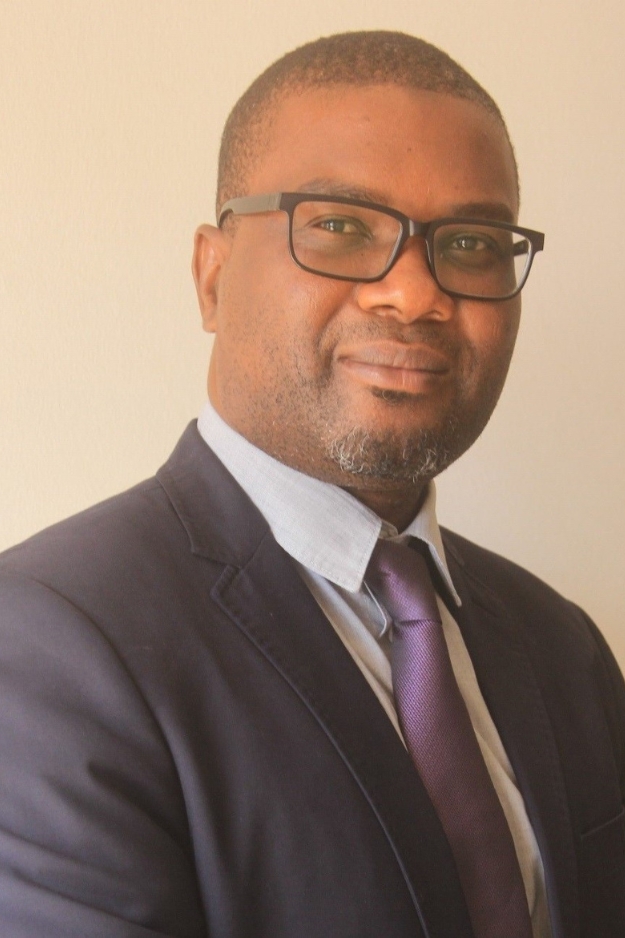
Dr. Chisoni Mumba is an Associate Professor of Animal Health Economics at the University of Zambia (UNZA), School of Veterinary Medicine. He holds a PhD in Veterinary Sciences – Animal Health Economics from the Norwegian University of Life Sciences, along with MSc and BVM degrees from UNZA. His academic and administrative career spans over a decade, with extensive experience in teaching, postgraduate supervision, and curriculum development. As Assistant Dean – Postgraduate Studies (2020–2024), he led the transformation of doctoral training at UNZA, including the implementation of a structured, competency-based PhD framework. Dr. Mumba is also an active contributor to academic publishing, serving as Chief Editor of the Journal of Agriculture and Biomedical Sciences, and as an editorial board member for PLOS ONE and Frontiers in Veterinary Science. He has published more than 60 peer-reviewed papers and mobilized over $6 million in research funding for the School of Veterinary Medicine. Beyond academia, he has been instrumental in strengthening Zambia’s livestock sector through applied research, policy advocacy, and training of frontline staff. His work focuses on enhancing food safety, animal health systems, and household livelihoods. Dr. Mumba is also a distance runner and enjoys challenging himself outside the academic sphere.
Dr. Joseph Petrosino
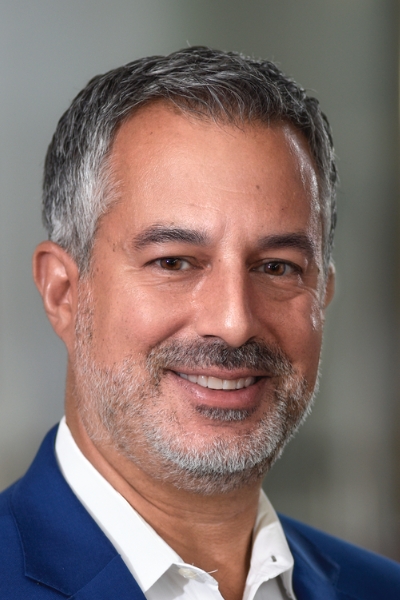
Joseph F. Petrosino, Ph.D. is the Chief Scientific Innovation Officer (CSIO) at Baylor College of Medicine (BCM), where he is also professor and chairman of the department of Molecular Virology and Microbiology, founding director of the Alkek Center for Metagenomics and Microbiome Research (CMMR) and a member of the Dan L. Duncan Comprehensive Cancer Center. He received his Ph.D. from Baylor College of Medicine in 1998 and remained at Baylor for postdoctoral training in the Department of Molecular and Human Genetics until 2004 when he joined the faculty of the Department of Molecular Virology and Microbiology. In 2013, Dr. Petrosino founded Diversigen, a start-up where the robust analytic pipelines built in the CMMR have been commercialized to support biotech and pharmaceutical industry needs. He sits on the scientific advisory boards of several biotechnology, pharmaceutical, and nutrition companies and has contributed to more than 290 peer-reviewed microbiome studies. As the BCM CSIO, Dr. Petrosino leads the commercialization mission for the institution, directing the strategy for how therapeutic, diagnostic, educational, digital health, device, and other BCM intellectual property may be translated from the academic environment to the commercial realm.
Dr. Ashish Ranjan
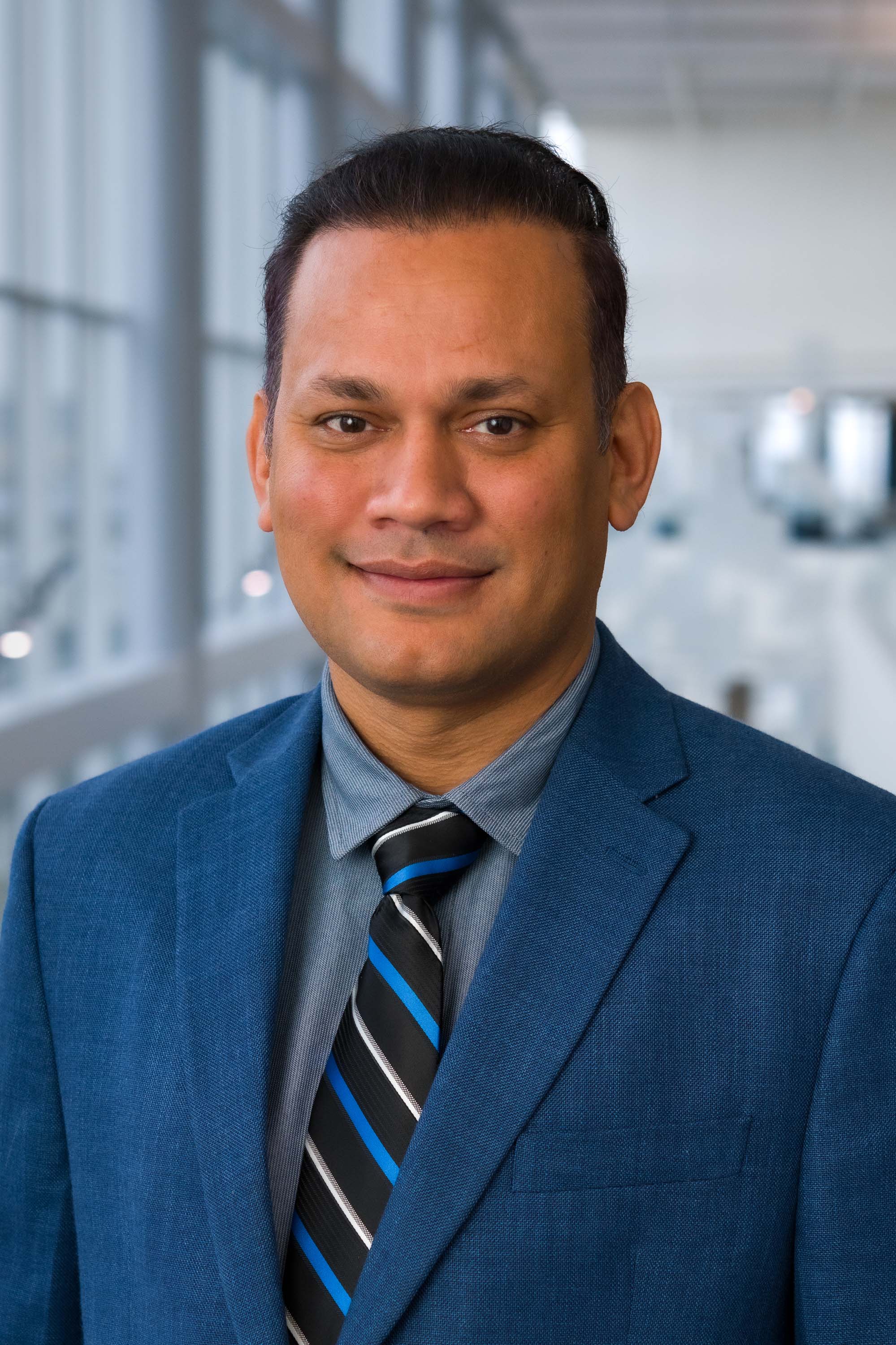
Dr. Ashish Ranjan is an Endowed Professor and Vice Chair of Comparative Oncology & Research Innovations, and Director of the Veterinary Research & Oncology Center (VROC) within the Department of Radiation Oncology at UT Southwestern Medical Center. Prior to joining UTSW, he held the Kerr Foundation Endowed Chair at the College of Veterinary Medicine, Oklahoma State University, where he also directed the INTERACT program. Dr. Ranjan’s laboratory is internationally recognized for advancing device–drug combination strategies in comparative oncology, with translational studies spanning murine models and companion animals with naturally occurring cancers. At UTSW, he is leading the development of a cross-species clinical trial platform that embodies the One Medicine/One Health paradigm. His research portfolio focuses on integrating focused ultrasound with nanomedicine to reprogram the tumor microenvironment in treatment-resistant cancers such as melanoma, soft tissue sarcoma, and metastatic disease. His lab is supported by federal, state, and private foundation funding and maintains active collaborations with both academic and industry partners. A veterinarian by training with deep expertise in translational oncology, Dr. Ranjan is committed to bridging animal and human health through innovative cancer therapies. He is the recipient of numerous honors, including the NIH MERIT Award, and serves on advisory boards for several research foundations.
Dr. Karl Rich
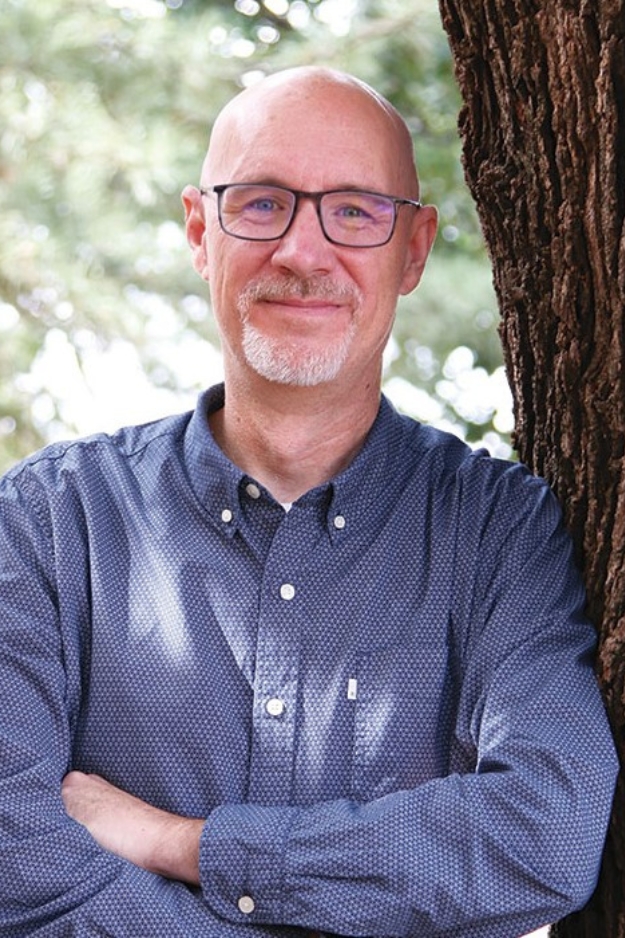
Dr. Karl M. Rich is Director of International Agricultural Programs for the Ferguson College of Agriculture, Director of the Master of International Agriculture Program, and a Professor of Agricultural Economics at Oklahoma State University. Dr. Rich joined OSU in July 2021 after 16 years of working overseas. He was previously Team Leader at the International Livestock Research Institute’s (ILRI) West Africa Regional Office in Dakar, Senegal. At ILRI, Dr. Rich led a multidisciplinary team conducting applied research that informed livestock sector strategy and investment options in the developing world. Previous to his work at ILRI, Dr. Rich worked at Lincoln University in New Zealand; the Norwegian Institute of International Affairs in Oslo; the South Asia Office of the International Food Policy Research Institute in New Delhi, India; and the U.S. International Trade Commission in Washington, D.C. He also has served as an advisor to the CGIAR Covid-19 Hub; a World Health Organization panel on neglected tropical diseases; and the Scottish Government’s Centre for Excellence on Animal Health (EPIC). Dr. Rich holds graduate degrees (M.S. and Ph.D.) in agricultural economics from the University of Illinois at Urbana-Champaign and a bachelors (A.B.) degree in economics from the University of California, Berkeley.
Dr. Magda Rich
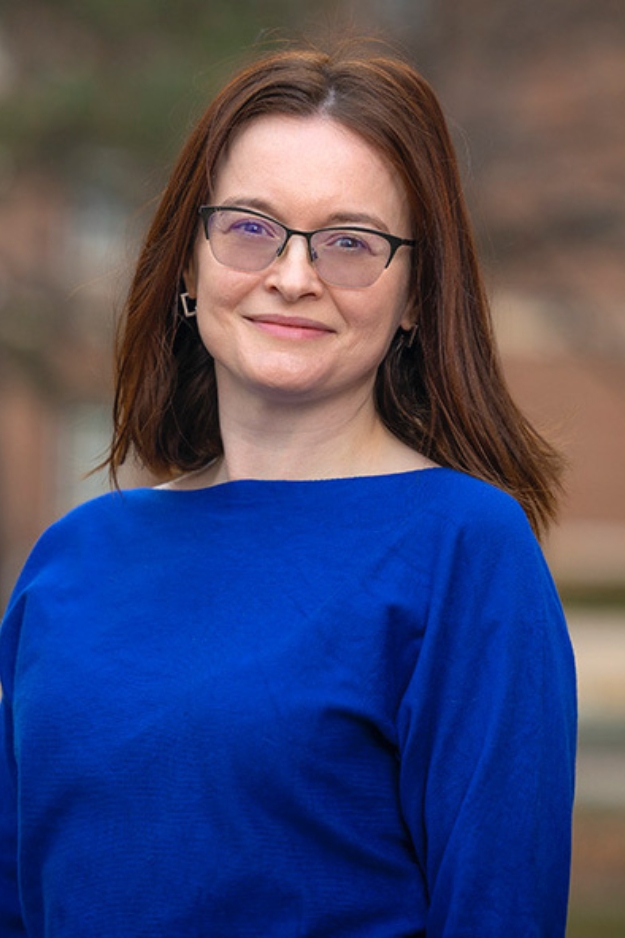
Dr. Magda Rich is the Coordinator of International and Domestic Outreach Activities at the College of Veterinary Medicine at OSU and an Adjunct Instructor in the Master of International Agriculture Program. She received her Ph.D. in Urban Planning from the University of Brighton. Her research interests focus on care farming and the therapeutic use of natural elements in urban areas, and the use of participatory research methods for community engagement in research projects. She gained professional experience at the Norwegian Institute of International Affairs, Lincoln University in New Zealand, and as director of a small consultancy company based in Europe. In these positions, she worked on a number of multidisciplinary projects in diverse international settings, e.g., India, New Zealand, Zambia, and Tanzania, and gained further practical experience through living in multiple countries including New Zealand, Vietnam, and Senegal. Understanding the value of international experiences prompted her to assume an administrative role to help enable students and faculty with international mobility and gaining international professional experience. Concurrently, she teaches courses on urban agriculture and participatory decision making and continues to investigate and develop new techniques and tools to support participatory research approaches.
Dr. Amandeep Singh
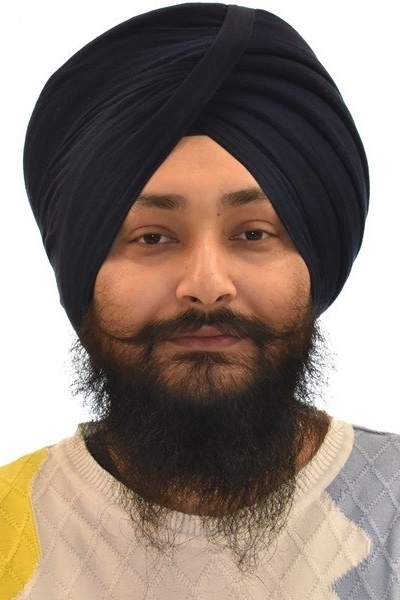
Dr. Amandeep Singh is serving as Assistant Professor of Veterinary Extension at one of the state-funded veterinary universities in India. Being a veterinarian with a master's in Veterinary Extension Education, he has also served as a public veterinarian for the government. He has more than six years of work experience as an expert in veterinary sciences and animal husbandry. Moreover, he is a prolific writer with more than 100 publications in the form of research papers, review papers, books, and book chapters. He has also been instrumental in the development of resources for the farming community in the form of extension/newspaper articles, leaflets, booklets, manuals, online courses, mobile apps, information systems, websites, and more. He is proficient in multiple languages like English, Hindi, Punjabi, Dogri, and many native dialects, which have enabled him to build a good rapport with the stakeholders involved in the livestock sector. Furthermore, he has completed six projects as Principal Investigator and four projects as Co-Principal Investigator. Currently, he is on a long-term academic assignment at the University of British Columbia, Canada.
Dr. Patrick Stephens

Patrick R. Stephens is a biologist whose work focuses on disease macroecology and large-scale biodiversity patterns. He earned his Ph.D. in Ecology and Evolution from Stony Brook University, after beginning his graduate training at the University of Pittsburgh and the Carnegie Museum of Natural History. He held postdoctoral positions at the National Center for Ecological Analysis and Synthesis in California and later served as an Associate Research Scientist at the Odum School of Ecology at the University of Georgia. Dr. Stephens joined Oklahoma State University’s Department of Biology in early 2022 as part of a cluster hire aimed at understanding the drivers of infectious disease pandemics. Since arriving at OSU, he has published 14 scholarly articles in journals such as Lancet Planetary Health and Trends in Parasitology. His research began with a focus on the evolutionary ecology of emydid turtles but expanded to broader questions about biodiversity, community structure, and infectious disease dynamics. He previously led the NSF-funded Macroecology of Infectious Disease Research Coordination Network, which brought together scientists from over a dozen universities across six countries and generated more than 50 publications over six years.
Dr. David Ussery
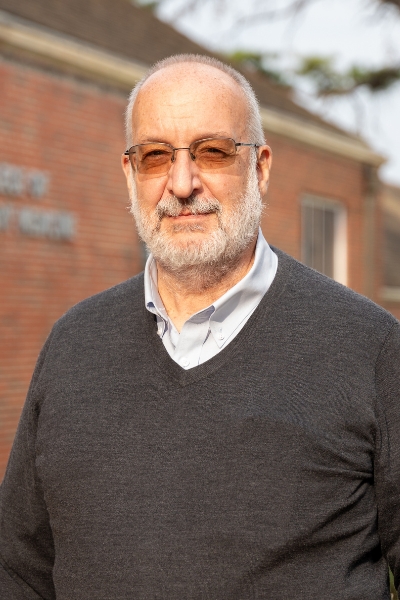
Professor David Ussery has been working with bioinformatic analysis of bacterial genomes since the first sequence was published in 1995 and in 2024 was recognized as a ‘highly ranked scholar’ in genomics, for being in the top 0.05% of scholars worldwide. Prior to joining the OSU Veterinary Medicine Physiology department in 2025, Dr. Ussery was a professor at the University of Arkansas for Medical Sciences (UAMS) in Little Rock, Arkansas, from 2016 through 2025, where he was the director for the Arkansas Center for Genomic Epidemiology and Medicine (ArC-GEM). Previously, he was at Oak Ridge National Labs, in Oak Ridge, Tennessee (2013-2016). He led the Comparative Microbial Genomics group at The Technical University of Denmark from 1997 – 2014, where he has successfully supervised more than two dozen Ph.D. students in bioinformatics. Dr. Ussery received a doctorate in Molecular Biology in 1993 from The University of Cincinnati College of Medicine and did a post-doctoral fellowship at Oxford University (1992-1996). He earned his master’s degree in biophysical chemistry at the University of New Mexico in Albuquerque in 1986. He earned a bachelor’s degree in chemistry from William Jewell College (Liberty, Missouri) in 1982, and graduated from Springdale High School (Springdale, Arkansas) in 1978.
Dr. Michael Wimberly

Dr. Michael C. Wimberly is a Professor of Geography and Environmental Sustainability and Interim Director of the Data Institute for Societal Challenges at the University of Oklahoma. He holds a bachelor’s degree from the University of Virginia, a master’s degree from the University of Washington, and a Ph.D. from Oregon State University. Dr. Wimberly has a background in ecology and geospatial analytics and is an expert in using satellite Earth observations to monitor global change and explore environmental impacts on ecosystems and human health. He teaches courses on geographic data science and human-environment interactions and conducts research on a variety of topics including deforestation, wildfires, urbanization, and the ecology of vector-borne and zoonotic diseases. In 2022, he was awarded the American Geophysical Union’s GeoHealth Section Award for his research on understanding the influences of weather, climate, and land use on vector-borne disease transmission and his work on developing innovative tools for disease forecasting.
Dr. Aaron Wright

Aaron Wright is the James R. Schofield Professor of Biomedical Sciences in the Department of Biologyat Baylor University, with a secondary appointment in the Department of Chemistry & Biochemistry. His chemical biology research focuses on providing mechanistic understanding of host-microbiome-environment interactions with high resolution at the level of protein structure and activity. His group works at the interface of chemistry, microbiology, and multi-omics to develop and apply new function-driven capabilities to enable discoveries in complex microbial systems. Prior to joining Baylor Universityin 2022, he was the group leader for Chemical Biology and Biological Systems Sciences at Pacific Northwest National Laboratory and held a joint faculty position at Washington State University from 2008-2022. He received his B.S. in Chemistry from George Fox University in 2001, his Ph.D. in Organic Chemistry from the University of Texas at Austin in 2006, and was a postdoctoral fellow in Chemical Biology at The Scripps Research Institute from 2006-2008. He has had numerous grants from NIH, DOE, DOD, NSF and others. In 2024, he was awarded the NIH Director’s Transformative Research Award.
